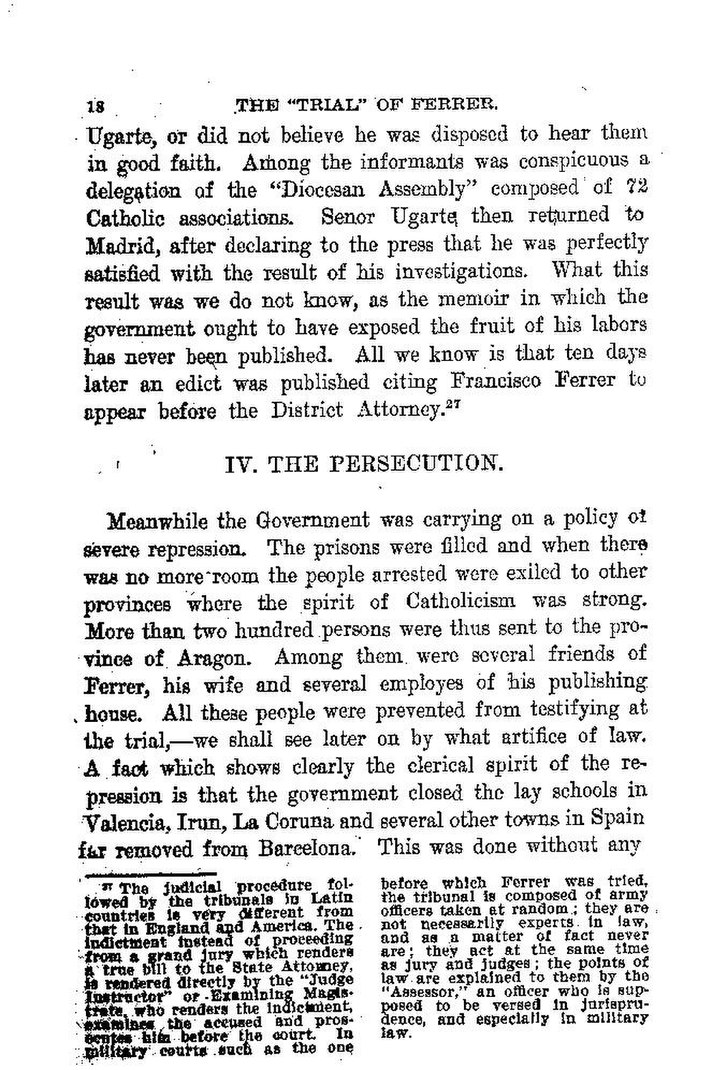Ugarte, or did not believe he was disposcd to hear them in good faith. Among the informants was conspicuous a delegation of the "Diocesan Assembly" composed of 72 Catholic associations. Senor Ugarte then returned to Madrid, after declaring to the press that he was perfectly satisfied with the result of his investigations. What this result was we do not know, as the memoir in which the government ought to have exposed the fruit of his labors has never been published. All we know is that ten days later an edict was published citing Francisco Ferrer to appear before the District Attorney.7 IV. THE PERSECUTION. Meanwhile the Government was carrying on a policy ot severe repression. The prisons were filled and when there Was no more room the people arrested were exiled to other provinces where the spirit of Catholicism was strong. More than two hundred persons were thus sent to the pro- vince of Aragon. Among them. were several friends of Ferrer, his wife and several employes of his publishing house. All these people were prevented from testifying at the trial,-we shall see later on by what artifice of law. A fact which shows clearly the clerical spirit of the re pression is that the government closed the lay schools in Valencia, Irun, La Coruna and several other towns in Spain far removed from Bareelona. This was done without any T The judiclal procedure fol- tówed by the tribunals io Latin countries ie very drerent from that in Engiand and Amerlca. The. indietment tnstead of proeeeding from a grand jury wbich renders
- true blil to the 8tate Attoney,
e rendered direetly by the "Judge Tostructor" or Examining Magis. trate, who renders the Indichment, before whlch Ferrer was tried, the tribunal is composed of army officers taken at random ; they are not neces8arlly experts. in law, and as a maiter of fact never are; they act at the same tinme as jury and judges; the polnts of law are explained to them by the "Assessor," an oficer who ls sup- posed to be versed in Jarfepru- dence, and especiatly in mlltary examines the accused and pros- In Bentes bita betore the court. law.
mlltary. courts.such as the one
